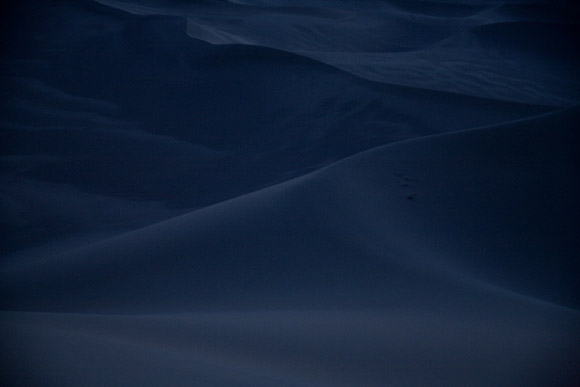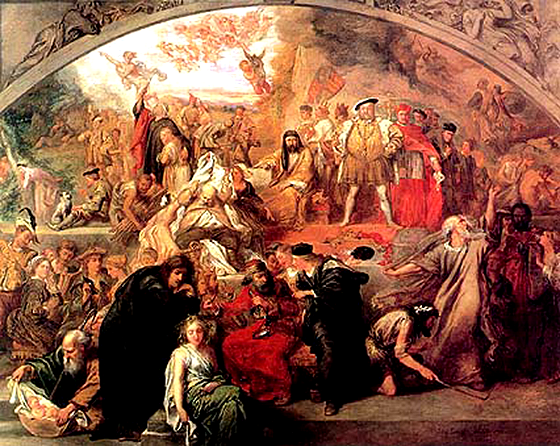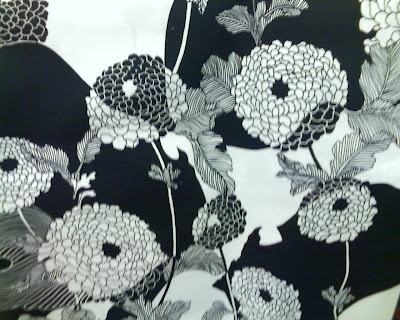
Ode
Weep, ah weep love’s losing, love’s with its dwelling-place
set where the hills divide Dakhuli and Haumali.
Tudiha and Mikrat! There the hearths-stones of her
stand where the South and North winds cross-weave the
sand-furrows.
See the white-doe droppings strewn by the wind on them,
black on her floors forsaken, fine-grain of peppercorns.
Here it was I watched her, lading her load-camels,
stood by these thorn-trees weeping tears as of colocynth.
Here my twin-friends waited, called to me camel-borne:
Man ! not of grief thou diest. Take thy pain patiently.
Not though tears assuage thee, deem it beseemeth thee
thus for mute stones to wail thee, all thy foes witnesses.
What though fortune flout thee! Thus Om Howeyrith did,
thus did thy Om Rebabi, fooled thee in Masali.
O, where these two tented, sweet was the breath of them,
sweet as of musk their fragrance, sweet as garanfoli.
Mourned I for them long days, wept for the love of them,
tears on my bosom raining, tears on my sword-handle.
Yet, was I unvanquished. Had I not happiness,
I, at their hands in Daret, Daret of Juljuli?
O that day of all days! Slew I my milch-camel,
feasted the maidens gaily: well did they load for me!
Piled they high the meat-strings. All day they pelted me,
pelted themselves with fatness, fringes of camel-meat.
Climbed I to her howdah, sat with Oneyzata,
while at my raid she chided: Man ! Must I walk afoot?
Swayed the howdah wildly, she and I close in it:
There! my beast’s back is galled now. Slave of Grief,
down with thee.
Answered I: Nay, sweet heart, loosen the rein of him.
Think not to stay my kisses. Here will I harvest them.
Grieve not for thy camel. Grudge not my croup-riding.
Give me and thee to taste things sweeter than clove-
apples,
Kisses on thy white teeth, teeth, nay the pure petals,
even and clean and close-set, wreathing a camomile.
Wooed have I thy equals, maidens and wedded ones.
Her, the nursling’s mother, did I not win to her?
What though he wailed loudly, babe of the amulets,
turned she not half towards him, half of her clasped to me?
Woe is me, the hard heart! How did she mock at me,
high on the sand-hill sitting, vowing to leave and go!
Fatma, nay, my own love, though thou wouldst break with
me,
still be thou kind awhile now, leave me not utterly.
Clean art thou mistaken. Love is my malady.
Ask me the thing thou choosest. Straight will I execute.
If so be thou findest ought in thy lover wrong,
cast from thy back my garments, moult thee my finery.
Woe is me, the hard heart ! When did tears trouble thee,
save for my soul’s worse wounding, stricken and near to
die?
Fair too was that other, she the veil-hidden one,
howdahed how close, how guarded! Yet did she welcome
me.
Passed I twixt her tent-ropes : what though her near-of-kin
lay in the dark to slay me, blood-shedders all of them.
Came I at the mid-night, hour when the Pleiades
showed as the links of seed-pearls binding the sky’s
girdle.
Stealing in, I stood there. She had cast off from her
every robe but one robe, all but her night-garment.
Tenderly she scolded : What is this stratagem?
Speak, on thine oath, thou mad one. Stark is thy
lunacy.
Passed we out together, while she drew after us
on our twin track to hide it, wise, her embroideries,
Fled beyond the camp-lines. There in security
dark in the sand we lay down far from the prying eyes.
By her plaits I wooed her, drew her face near to me,
won to her waist how frail-lined, hers of the ankle-rings.
Fair-faced she no redness noble of countenance,
smooth as of glass her bosom, bare with its necklaces.
Thus are pearls yet virgin, seen through the dark water,
clear in the sea-depths gleaming, pure, inaccessible.
Coyly she withdraws her, shows us a cheek, a lip,
she a gazelle of Wujra: yearling the fawn with her.
Roe-like her throat slender, white as an ariel’s,
sleek to thy lips up-lifted : pearls are its ornament.
On her shoulders fallen thick lie the locks of her,
dark as the dark date – clusters hung from the palm –
branches.
See the side-plaits pendent, high on the brows of her,
tressed in a knot, the caught ones fast with the fallen
ones.
Slim her waist: a well-cord scarce has its slenderness.
Smooth are her legs as reed-stems stripped at a water-
head.
The morn through she sleepeth, musk-strewn in indolence,
hardly at noon hath risen, girded her day dresses.
Soft her touch: her fingers fluted as water- worms,
sleek as the snakes of Thobya, tooth-sticks of ‘Ishali.
Lighteneth she night’s darkness, ay, as an evening lamp
hung for a sign of guidance lone on a hermitage.
Who but shall desire her, seeing her standing thus,
half in her childhood’s short frock, half in her woman’s
robe !
Strip thee of youth’s fooling, thou in thy manhood’s
prime.
Yet to her love be faithful: hold it a robe to thee.
Many tongues have spoken, warned me of craft in love.
Yet have they failed an answer: all were thine enemies.
Dim the drear night broodeth: veil upon veil let down,
dark as a mad sea raging, tempting the heart of me.
Spake I to Night stoutly, while he, a slow camel,
dragged with his hind-feet halting: gone the forehand of
him.
Night! I cried, thou snail Night, when wilt thou turn to
day?
When? Though in sooth day’s dawning worse were than
thou to me.
Sluggard Night, what stays thee ? Chained hang the stars
of thee,
fast to the rocks with hempen ropes set un-movable.
Water-skins of some folk ay, with the thong of them
laid on my naga’s wither borne have I joyfully,
Crossed how lone the rain-ways, bare as an ass-belly:
near me the wolf, starved gamester, howled to his
progeny.
Cried I: Wolf, thou wailest. Surely these lives of ours,
thine and my own, go empty, robbed of prosperity.
All we won we leave here. Whoso shall follow us,
seed in our corn-track casting, reap shall he barrenness.
Rode I forth at day-dawn–birds in their nests asleep–
stout on my steed, the sleek coat, him the game-
vanquisher.
Lo, he chargeth, turneth–gone is he–all in one, like
to a rock stream-trundled, hurled from it’s eminence.
Red-bay he—his loin-cloth chafing the ribs of him.
Shifts as a rain-stream smoothing stones in a river-bed.
Hard is he–he snorteth loud in the pride of him, fierce
as a full pot boiling, bubbling beneath the lid.
Straineth he how stoutly, while, as spent fishes swim,
tied to his track the fleet ones plow his steps wearily.
See, in scorn he casteth youth from the back of him,
leaveth the horseman cloakless, naked the hard-ride.
As a sling-stone hand-whirled, so is the might of him,
loosed from the string that held it, hurled from the
spliced ribbon.
Lean his flanks, gazelle-like, legs as the ostrich’s; he like
a strong wolf troteth; lithe as a fox-cub he.
Stout his frame; behind him, look, you shall note of him
full-filled the hind-leg gap, tail with no twist in it.
Polished, hard his quarters, smooth as the pounding-
stone used for a bridegroom’s spices, grind-slab of
colocynth.
As the henna juice lies dyed on a beard grown hoar, so
on his neck the blood-stains mark the game down-
ridden.
Rushed we on the roe-herd. Sudden, as maids at play
circling in skirts low-training, forth leaped the does
of it.
Flashing fled they, jewels, shells set alternately on a
young gallant’s neck-string, his the high pedigreed.
Yet he gained their leaders, far while behind him lay
bunched in a knot the hindmost, ere they fled scatter-
wise.
‘Twixt the cow and bull herds held he in wrath his road;
made he of both his booty–sweatless the neck of
him.
All that day we roasted, seethed the sweet meat of them,
row upon row in cauldrons, firelighters all of us.
Nathless home at night-fall, he in the fore-front still.
Where is the eye shall bind him? How shall it follow
him?
The night through he watcheth, scorneth him down to
lay, close, while I sleep, still saddled, bridled by side
of me.
Friend, thou seest the lightning. Mark where it
wavereth, gleameth like fingers twisted, clasped in
the cloud-rivers.
Like a lamp new-lighted, so is the flash of it, trimmed
by a hermit nightly pouring oil-sesame.
Stood I long a watcher, twin-friends how dear with me,
till in Otheyb it faded, ended in Dariji.
By it’s path we judged it: rain over Kattan is; far in
Sitar it falleth, streameth in Yathoboli.
Gathereth gross the flood-head dammed in Kuteyfati.
Woe to the trees, the branched ones! Woe the kanah-
boli!
El Kanaan hath known it, quailed from the lash of it.
Down from their lairs it driveth hot foot the ibexes.
Known it too hath Teyma; standeth no palm of her
there, nor no house low-founded,–none but her rock-
buildings.
Stricken stood Thabira whelmed by the rush of it, like
an old chief robe-folded, bowed in his striped mantle.
nay, but he Mujeymir, tall-peaked at dawn of day,
showed like a spinster’s distaff tossed on the flood-
water.
Cloud-wrecked lay the valley piled with the load of it,
high as in sacks the Yemami heapeth his corn-
measures.
Seemed it then the song-birds, wine-drunk at sun-rising,
loud through the valley shouted, maddened with
spiceries,
While the wild beast corpses, grouped like great bulbs
up-torn, cumbered the hollow places, drowned in the
night-trouble.



 https://www.facebook.com/media/set/?set=a.10153204752426754.1073741827.706436753&type=1&l=21ce8942e2
https://www.facebook.com/media/set/?set=a.10153204752426754.1073741827.706436753&type=1&l=21ce8942e2









 Plutarch’s Lives (North translation)
Plutarch’s Lives (North translation)





